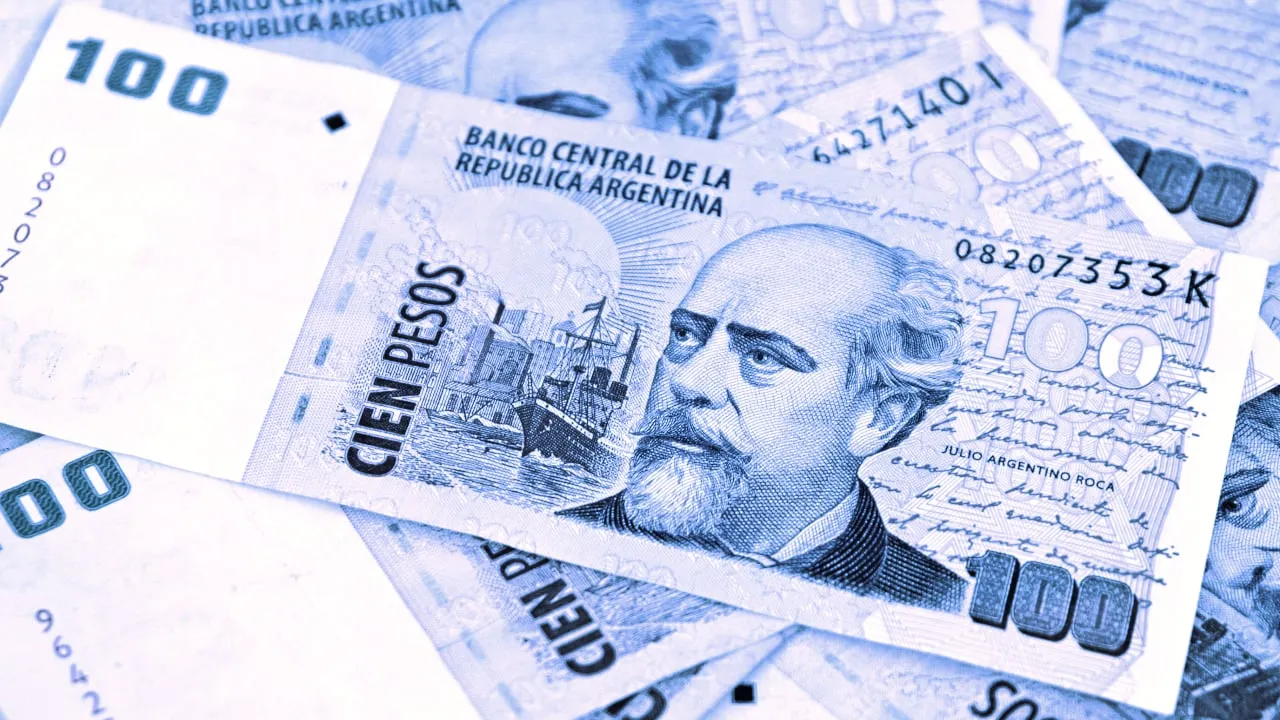In brief
- Argentina may be the next country to start developing its own digital currency.
- The governor of Catamarca has submitted a formal proposal to begin the process.
- It's just the first of many steps should Argentina's president opt to move forward.
The governor of the Argentine province of Catamarca, Raúl Jalil, submitted a written proposal earlier this week to the country's president, Alberto Fernandez, urging him to create Argentina’s own national digital currency.
Jalil’s proposal for an Argentine “digital peso” seeks to mobilize Argentina's battered economy while taking advantage of the benefits provided by blockchain technology, such as transparent accounting.
"It is necessary to think of a new model of financial services. Technology not only breaks down the borders between businesses but it is already altering the balance between countries," Jalil told Argentine newspaper El Ancasti on Tuesday. The governor’s proposal also includes the possibility of tokenizing mining royalties at the local level, enabling the use of digital wallets and blockchain networks to manage these payments.
Governor Jalil’s formal letter to President Fernandez is but the first of many bureaucratic steps should Argentina move forward with a digital peso. Fernandez has the authority to reject the proposal outright, or pass it on to both the country’s central bank and Congress with his approval. Then the debate among Argentine lawmakers would begin in earnest.
The ostensible goal of creating a central bank digital currency (CBDC) for Argentina, to revitalize its ailing economy, is not without merit. For several years, the country has shared with neighboring Venezuela the distinction of being among the worst economies in the world. But unlike Venezuela’s petro “cryptocurrency”—the country’s own digital currency launched by the Nicolas Maduro government—an Argentine digital peso would make no attempt to even appear decentralized.
By contrast, Jalil’s proposal suggests that the regulatory framework of a CBDC would make things much more comfortable if monetary issuance were backed by the central bank. A central bank-backed asset would be more reliable, and could make Argentina more attractive to investors, than if it were to issue a decentralized currency, said Jalil.
"It could result in a lower implicit risk of the capital since most cryptocurrencies have a price with a high speculative component. That is to say that it would offer a more attractive investment for less specialized or relatively risk-averse investor profiles," said the governor.
Argentina’s relationship with digital currency isn’t new. The financial crisis paired with currency controls that make it difficult to access foriegn money, such as US dollars, have led to increased interest in Bitcoin among Argentines. The term “dolar bitcoin” has entered the local lexicon as an exchange reference and has become nearly as common as other dollar “denominations” in the country, such as the dolar blue, dolar tourist, and dolar retailer.
Argentina has also a very active peer-to-peer Bitcoin trading market. At one point in 2019, following financial panic amid political turmoil, Bitcoin was trading at a significant premium compared to most other markets. And while some lawmakers have attempted to restrict Bitcoin trading as a way of preventing the flight of pesos, interest in the cryptocurrency (as measured by Google Trends) has never been higher.

